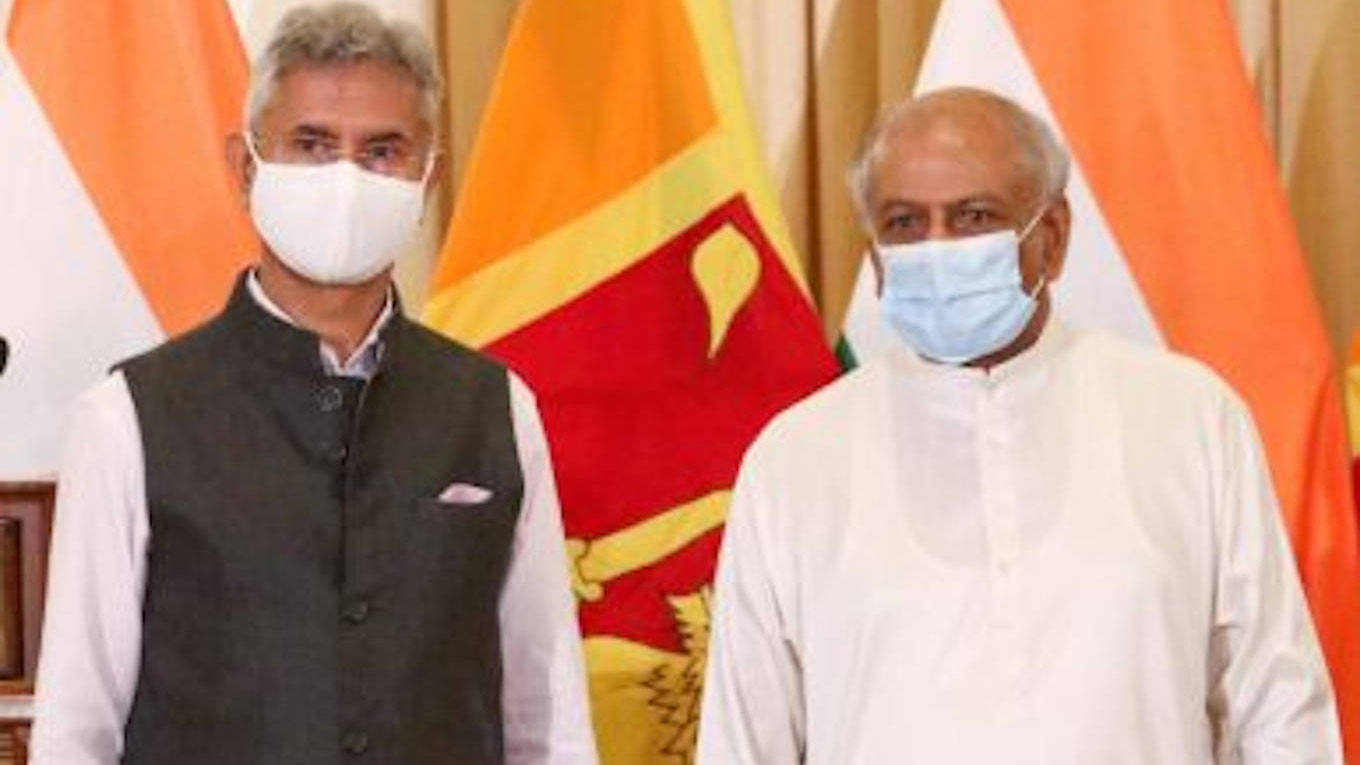With assembly elections in Tamil Nadu round the corner, it came no surprise that External Affairs Minister S. Jaishankar should raise the issue of Tamil aspirations during his visit to Sri Lanka, his first overseas visit of the year. Indeed, the visit was significant not for any specific outcomes but for what was achieved in political and diplomatic messaging by both sides. Jaishankar’s reminder in Colombo that the 13th Amendment to the Sri Lanka Constitution is essential to ethnic reconciliation came at a time when powerful Sri Lankan politicians close to President Gotabaya Rajapaksa and his brother Prime Minister Mahinda Rajapaksa are calling for its scrapping. With the Bharatiya Janata Party planning to contest the assembly election in a big way, either in partnership with the AIADMK or some local outfits, the issue appears to have gained political traction after DMK’s T.R. Balu, former Union minister, asked Prime Minister Narendra Modi to ensure that the provincial council system remains intact. The 13th Amendment was a consequence of the Indian intervention in Sri Lanka during 1987-90. It flowed from the India-Sri Lanka Accord of 29 July 1987. Sri Lanka is a unitary country, and the 1978 Constitution had concentrated all powers in the Centre. The agreement was aimed at finding a way forward on devolution of political powers to the then North-Eastern province, comprising the Tamil dominated areas of the island country. Under the terms of the accord (also known as the Jayawardene-Rajiv Gandhi agreement), the Sri Lankan parliament had brought in the 13th Amendment, which provides for a system of elected provincial councils across Sri Lanka. Thus, it was not just the North-Eastern province that would get a provincial council but provinces in the rest of Sri Lanka too. There has always been a strong lobby in favour of repealing the provision, as it was seen as an outcome of the India-mediated Tamil demand for power sharing. As with the now-abrogated Article 370 in the Indian Constitution relating to Kashmir, the 13th Amendment is seen as encouraging Tamil separatism and secessionism. It is the only provision in the Constitution that is a slight nod in the direction of Sri Lanka’s Tamil national question. The demand for doing away with it comes up every now and then – especially, in times such as now, when there are signs of a possible resurgence of Sinhala Buddhist nationalism. The cancellation of elections to the provincial councils, apparently due to a spike in Covid-19 cases, is being viewed as a first step towards this end. Jaishankar’s message, that India still sees the 1987 amendment – the constitutional basis for the provincial councils – as central to addressing Tamil political aspirations came within days of Balu’s statement, though Sri Lankan Tamils themselves no longer set that much store by India’s or Tamil Nadu’s pronouncements on their problems. New Delhi’s waning influence in Sri Lanka is an open secret. Yet, it would be a diplomatic and political embarrassment for the Modi government, if the 13th Amendment was indeed abolished.
-

The differences between the two countries were obvious at the joint press conference of Jaishankar and his counterpart Dinesh Gunawardena

































